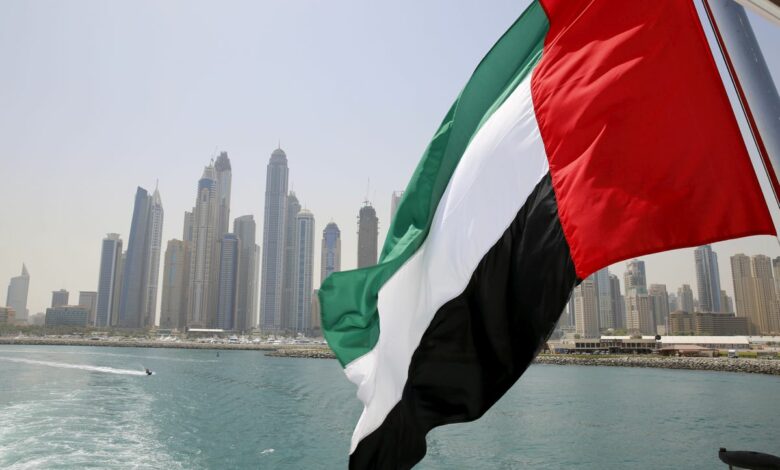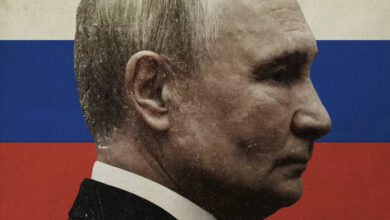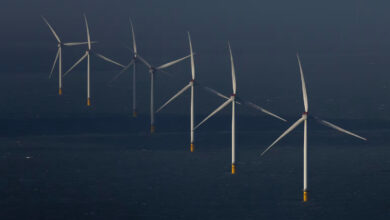
Abu Dhabi, UAE (CNN) – A bombshell announcement by a United Arab Emirates diplomat on Wednesday raised hopes that Gulf oil producers might come to the rescue as oil prices climbed to an eight-year high on Russia’s war in Ukraine.
Yousef Al Otaiba, the UAE ambassador in the United States, told CNN his country favors an oil output hike. It was the first indication from a member of the OPEC+ cartel of oil producers that a supply increase beyond what was agreed by the group could be considered. OPEC+ had refused to budge from its current plan to gradually ramp up output.
OPEC+ is a group of 23 oil producing countries, including Russia, that coordinates oil policies which have a role in determining prices on the market.
Western nations have placed sanctions on Moscow’s energy exports in response to its invasion of Ukraine. That could lead Russia’s seaborne oil exports to shrink to a third of their level before the invasion, estimated Energy Intelligence, an energy information company. The move could potentially drive the price of a barrel even higher as the West grapples with high inflation.
The Gulf nations of UAE and Saudi Arabia are the only countries in OPEC+ with enough spare oil production capacity to add to the market, but they had rebuffed calls to pump more crude — until Wednesday.
Brent crude fell 13 percent on Otaiba’s comments, the biggest one-day drop in almost two years.
Then, at 2 a.m. local time, UAE energy minister Suhail al-Mazrouei took to Twitter to clarify. “The UAE is committed to the OPEC+ agreement and its existing monthly production adjustment mechanism,” he said. Oil prices rebounded.
The fluctuation shows how volatile the market is, said Amena Bakr, chief OPEC correspondent at Energy Intelligence.
“Any signaling can move the price in either direction,” she said. “If, like the ambassador mentioned, the UAE favors an increase in production, perhaps that’s going to be discussed at the coming meeting on March 31.”
We asked Bakr how likely that is to happen, and if it will make a difference to the price of oil.
Why are oil prices going up and what can OPEC+ do about it?
At this point OPEC+ is playing the fundamentals card. They’re saying there is no actual shortage of supply in the market. We’re seeing oil prices rise to over $130 [per barrel], all on the back of the war between Russia and Ukraine. So it’s due to geopolitical tension, which the group can’t control at all.
Do you believe them?
To some extent, yes, because there’s a huge geopolitical premium. Prior to the war, [that premium] was already high.
Now I’d say there’s a premium of over $30 [per barrel]. So, I do believe that there’s a huge part of this equation that OPEC+ can’t control. But at the same time, it’s very, very important, especially for Saudi Arabia, to keep Russia united with OPEC+ and they don’t want to introduce a policy that is going to cause Russia to step out. They see this organization as the only way they can manage the market into the future.
They want to stay united until they can figure out how much of a shortage there is in Russian exports. And then they can act based on that.
How much spare production capacity does OPEC+ have?
Saudi Arabia has spare capacity of around 2 million barrels a day. The UAE has a sustainable spare capacity of 600,000 to 700,000 barrels a day.
And they say if we use up the spare capacity, prices are going to rise even further. So it’s better to stay out of it and let things calm down before taking action.
If they use up spare capacity, what impact will that have on the market? Can they replace Russian oil?
Russia’s [pre-war] exports were close to 4.8 million or 5 million barrels a day. Nobody can replace that or come near it. And from past experience, when OPEC adds production at a time of great volatility and uncertainty, the prices tend to go up. That’s how the market reacts.
Even with a symbolic gesture to show that they’re politically aligned with one party over the other, it’s not going to have the impact on the market that people are imagining. When the International Energy Agency released 60 million barrels [on March 1], oil prices jumped. That creates panic in the market. It’s not rational.
So, if Gulf states do decide to increase production, would that spell the end of OPEC+?
Right now, yes. I would say that there’s a very big likelihood that Russia would walk out. But you would also get other members. If you look at the list of countries that voted at the UN General Assembly [to condemn Russia’s invasion] there are a number of OPEC+ countries that abstained, meaning that they are either neutral or they’re siding with Russia. So you have all of these countries that are going to object to it. It’s not just Russia.
The agreement now is that they act as a 23-member group. If you ask me whether they’d take unilateral action, I’d say absolutely not, because they know that’s going to risk splitting the group up.
What do you think it’s going to take for the US to convince Gulf states to ramp up production?
For the time being, US officials have not been exerting any kind of political pressure on the Gulf states, in terms of not selling them arms. The Americans haven’t played that card, because to some extent, they are buying the spare capacity story. They also don’t want to aggravate an already very tense relationship.
What is an ideal price per barrel from the perspective of Gulf states?
Analysts might be wrongly interpreting triple-digit prices, saying Gulf states are really happy, but that’s not the case at all. They didn’t want prices to reach this level. They know it’s unsustainable and bad for demand. But their hands are tied — they can’t do anything about it. And the root cause is not OPEC, it’s the war.
The transcript has been edited for length and clarity.




